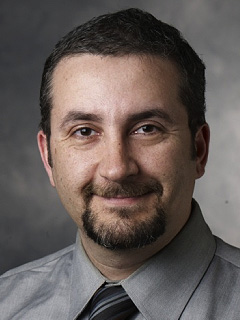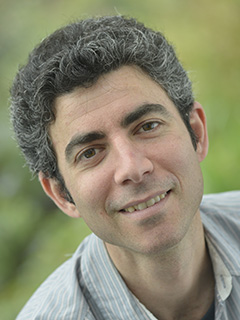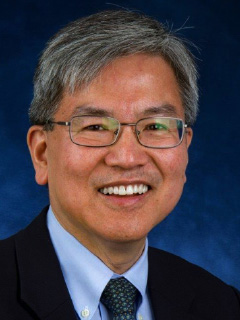Keynote speakers
We are happy to announce that the following invited keynote speakers have confirmed their participation at the meeting:
Short biographies for some of them are provided below.
In addition, many other eminent scientists have also accepted
invitations to speak at the conference, including Stian Knappskog, Ragnhild Lothe, Gunhild Mælandsmo, Ola Myklebost, Trevor Clancy, Heidi Namløs, Hilde Langseth, Edwin Cuppen and Bjørn Tore Gjertsen.
 Peter J. Park Peter J. Park
Dr. Park is Professor of Biomedical Informatics at Harvard Medical School and the director of its Bioinformatics and Integrative Genomics Ph.D. program. His group (http://compbio.hms.harvard.edu) specializes in computational and statistical analysis of high-throughput sequencing data in cancer genomics and epigenomics. Originally trained in applied mathematics (B.A., Harvard; Ph.D., Caltech), he was introduced to molecular biology and genetics during his postdoctoral studies in biostatistics. His laboratory has developed several algorithms for genome and epigenome analysis and has made major contributions to the Encyclopedia of DNA Elements (modENCODE) and The Cancer Genome Atlas (TCGA) projects. He is a co-leader of the Cancer Data Sciences Program at Harvard/Dana-Farber Cancer Center and a member of the Division of Genetics at Brigham and Women's Hospital and the Harvard Stem Cell Institute. |
| |
 Ivo Gut Ivo Gut
Dr. Gut is the Director of the Centro Nacional de Análisis Genómico (CNAG-CRG), one of the largest genome sequencing center in Europe. From 1999 to 2009 he established, at the Centre National de Génotypage (CNG), the highest throughput genotyping platform in Europe and executed many genome-wide association studies; he was the coordinator of the EU-funded Project READNA in which 2nd, 3rd and 4th generation nucleic acid analysis technologies were developed. He received his PhD in Physical Chemistry from the University of Basel in 1990. He is author of more than 350 research papers, 11 reviews and 12 book chapters, cited over 27 000 times, inventor of 25 patents or patent applications, founder of 4 biotech start-ups, and serves on numerous international advisory boards. |
| |
 Ash Alizadeh Ash Alizadeh
Tumor heterogeneity is a hallmark of cancer and a fundamental determinant of patient outcomes, and early detection has proven the most successful strategy to improve cancer outcomes. Ash Alizadeh leads a research group that uses genomic approaches for decrypting this tumor heterogeneity and for improving early cancer detection, with a focus on methodological innovation. In this effort, his group has made early foundational contributions to cancer taxonomy through genome-wide expression profiling, discovering important lymphoma subtypes. Building on this work, his group creates tools for detection and profiling of cancer genomic heterogeneity, and the dynamic immune microenvironment that can support or suppress tumors. They have developed innovative methods for noninvasive detection and monitoring through the profiling of circulating nucleic acids, and through the characterization of infiltrating immune cells. These methods are increasingly relevant in this exciting era of evolving targeted and immunologically directed cancer therapies. Dr. Alizadeh did his graduate training in Biophysics/Biochemistry with Dr. Patrick Brown at Stanford and Dr. Louis Staudt at NCI/NIH. He led a seminal study that defined distinct lymphoma subtypes using gene expression profiling, helping pave the path for many future studies in setting a framework for a molecular taxonomy of cancers. During his Hematology/Oncology fellowship training with Dr. Ronald Levy at Stanford, he helped translate his earlier observations by developing supervised learning methods for lymphoma survival prediction. During his postdoctoral work with Dr. Irving Weissman, he developed preclinical therapeutic strategies to eradicate lymphomas. As a Hematologist/Oncologist, he works on translating these strategies to patient care. Dr. Alizadeh’s group helped define mechanisms driving an aggressive lymphoma subtype, and to decipher the genomes of indolent yet incurable lymphomas. Separately, his group developed CAPP-Seq, an ultrasensitive and broadly-applicable method for profiling circulating tumor DNA. His group also developed CIBERSORT, a robust method for enumeration of cell subsets from tissue expression profiles, allowing their characterization prognostic landscape of genes and infiltrating immune cells across cancers (PRECOG).
Dr. Alizadeh has collaborated with more than ~800 coauthors and published more than 100 papers. As captured in his bibliography, this body of work includes a number of influential papers that have leveraged computational methods for insights into the biology of cancer genomes. |
| |
 Nitzan Rosenfeld Nitzan Rosenfeld
Dr. Nitzan Rosenfeld is senior group leader at the University of Cambridge, UK and CSO at Inivata Ltd. He is a recognised expert in cell-free DNA analysis and its application for non-invasive cancer genomics. Originally trained in Physics, Dr. Rosenfeld specialized in quantitative molecular biology, obtaining a Ph.D. from the Weizmann Institute of Science. In 2005 he joined Rosetta Genomics Ltd, where he was head of Computational Biology and led development of molecular tests that are commercially available for clinical use in oncology. Since 2009 he has been focusing on applications of circulating tumour DNA (ctDNA), as a group leader at the Cancer Research UK Cambridge Institute (University of Cambridge). His research group pioneered the use of Next-Generation Sequencing of ctDNA, demonstrating its potential as a liquid biopsy, and produced seminal publications establishing molecular techniques for ctDNA analysis including whole exome, hybrid capture, and tagged-amplicon sequencing (TAm-Seq); and applications of ctDNA including molecular profiling of gene panels, monitoring of tumour burden, and identification of therapeutic resistance mechanisms. In 2013 Dr. Rosenfeld was awarded the CRUK Future Leaders in Cancer Research prize, the British Association for Cancer Research Translational Research Award, and an ERC Starting Grant. In 2015 he was awarded the Foulkes Foundation Medal for outstanding achievements in medical science and significant impact on UK bioscience. In 2014, Dr. Rosenfeld and colleagues founded Inivata, to harness the emerging potential of circulating DNA analysis to improve testing and treatment for oncologists and their patients. |
| |
 Ching C. Lau Ching C. Lau
Ching Lau, M.D., Ph.D. is the Martin J. Gavin Endowed Chair and Chief of Pediatric Hematology/Oncology at Connecticut Children’s Medical Center and Professor of Pediatrics at Jackson Laboratory for Genomic Medicine and University of Connecticut School of Medicine. He was the former inaugural Co-Leader of the Pediatrics Program of the Dan L. Duncan Cancer Center at Baylor College of Medicine. Dr. Lau graduated from Rice University with a B.A. in Chemistry and subsequently received his Ph.D. in Pharmacology and M.D. from Harvard Medical School. He was a post-doctoral fellow in Cancer Genetics at Dana-Farber Cancer Center. He completed his Pediatrics Residency and Pediatric Hematology-Oncology Fellowship at Texas Children’s Hospital, Baylor College of Medicine. He was the former Associate Director of the Pediatric Neuro-oncology Program and the founder of the Cancer Genomics Program at the Texas Children’s Cancer Center. He is a member of the CNS Committee, Bioinformatics Steering Committee and Biopathology and Translational Research Committee of the Children’s Oncology Group. His research interests include the molecular biology of pediatric brain and bone tumors and the clinical applications of genomic technologies. He is a strong advocate for team science research in academia and is experienced in leading NCI-funded multi-disciplinary teams of research including being the principal investigator of the Director’s Challenge Project on osteosarcoma and the COG project on genome-based prognostic markers of ependymoma as well as co-principal investigator of the project on the molecular taxonomy of medulloblastoma and a member of the Steering Committee of the NCI’s Strategic Partnering to Evaluate Cancer Signatures (SPECS) Program and the NCI Therapeutically Applicable Research to Generate Effective Treatments (TARGET) Consortium. In addition, he is also a key investigator in the Stand Up to Cancer Pediatric Immunogenomics Dream Team. He was also the P.I. of the Genotyping Core for the NCI-funded International Gliogene Consortium. Dr. Lau has published more than 135 papers in prestigious peer-reviewed journals on cancer genetics and genomics and is a highly sought after speaker who has given more than 110 invited lectures in international and national meetings. |
| |







